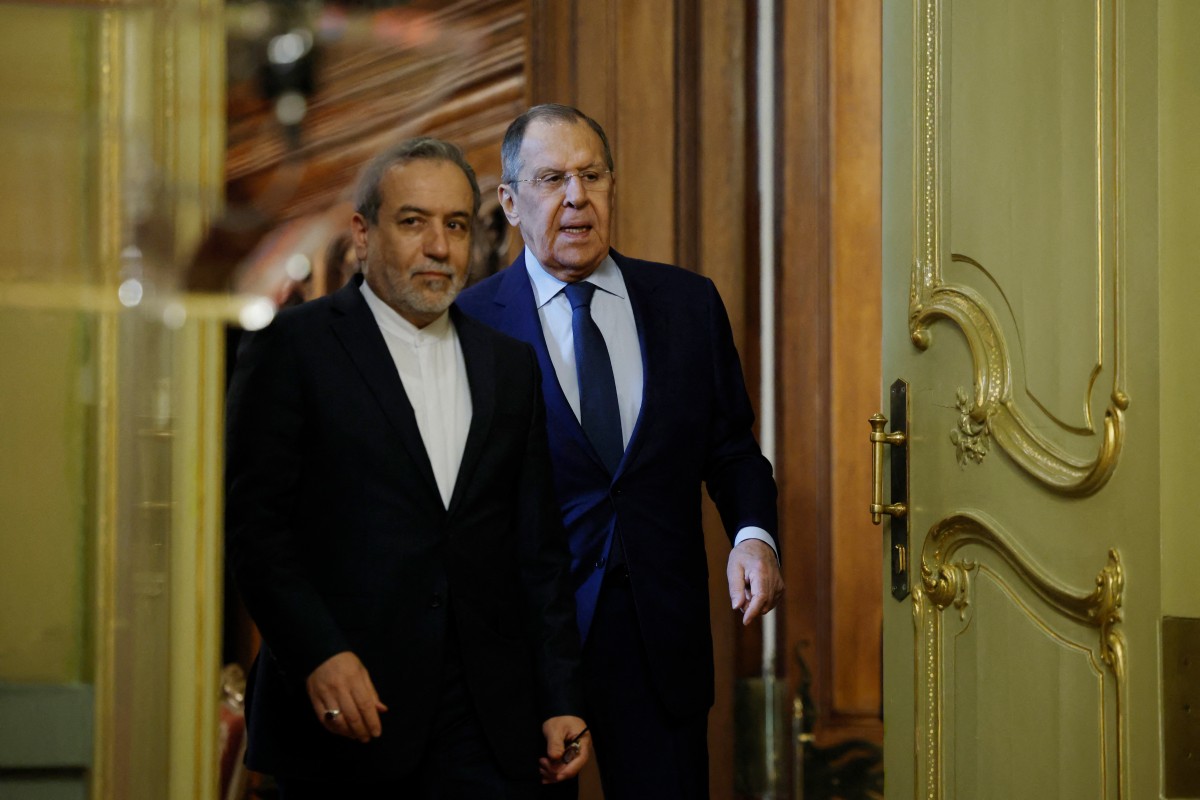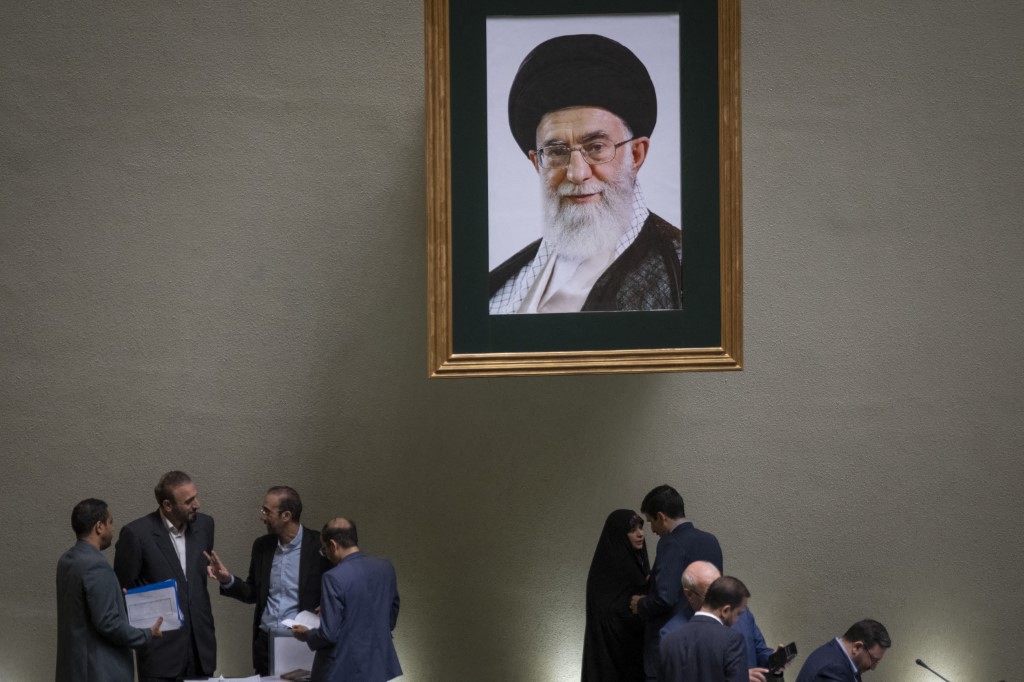Witkoff, a businessman friend of Trump who has become his globe-trotting negotiator, last met Foreign Minister Abbas Araghchi on Saturday in Rome, where they reported progress and called for talks among technical teams.
The State Department announced that Witkoff would himself attend the technical talks to take place Saturday in Oman — where he held his first meeting with Araghchi on April 12.
“The next round of talks will take place in Oman on Saturday, and will be the first meeting of technical teams,” State Department spokeswoman Tammy Bruce told reporters.
“Special Envoy Witkoff also will be present,” she said.
She said that Michael Anton, who serves as the State Department head of policy planning, will lead technical work on the US side.
Anton is a conservative scholar known more for his strong criticism of immigration into the United States than technical expertise on nuclear issues.
Witkoff, who had no diplomatic experience before being tapped by Trump, quickly immersed himself in efforts to secure a ceasefire in Gaza, which has since collapsed with Israel’s renewed offensive against Hezbollah.
He is also seeking to end the Ukraine war and is expected to meet Friday in Russia with President Vladimir Putin.
Iran seeks Europe talks
Trump in 2018 tore up an earlier nuclear deal negotiated under president Barack Obama and reimposed sweeping sanctions.
But since returning to office he has vowed to seek diplomacy and has discouraged Israel from carrying out a military strike on the nation it considers its arch-enemy.
Araghchi said Thursday he was open to traveling to Germany, France and Britain — US allies which were part of the 2015 nuclear deal and unsuccessfully sought to stop Trump from pulling out in his first term.
Araghchi, in a post on X, said he was open to discussing “not only on the nuclear issue, but in each and every other area of mutual interest and concern.”

In an allusion to European powers’ growing hawkishness on Iran since the first Trump term and to Israeli pressure, Araghchi said that Britain, France and Germany “have an opportunity to do away with the grip of Special Interest groups and forge a different path.”
Araghchi on Wednesday held talks in China and last week visited Russia.
French foreign ministry spokesman Christophe Lemoine told AFP that Paris would wait and see “if this announcement by the Iranian minister is followed by effects.”
He added that France “will very willingly continue to dialogue with the Iranians” on the nuclear subject.
Germany and Britain did not immediately comment.
Snapback
Following Washington’s withdrawal from the deal, Tehran stuck to the agreement for a year before scaling back its compliance, increasing its enrichment of uranium to up to 60 percent — far above the 3.67 percent ceiling set by the deal, but short of the 90 percent required for a bomb.
In December, the three European countries warned of the possibility of triggering the so-called “snapback” mechanism under the 2015 accord if Iran continued to develop its nuclear program.
If triggered, the mechanism would automatically reinstate UN sanctions on Iran over its non-compliance. The option to activate it expires in October.
US Secretary of State Marco Rubio has urged European countries to decide whether to use the option.
Iran has previously warned it could withdraw from the nuclear Non-Proliferation Treaty if the mechanism were triggered.
Iran FM ready to visit Berlin, Paris, London for nuclear talks
Tehran recently reopened nuclear talks with its arch-foe the United States, engaging in two rounds of mediated negotiations in Muscat and Rome, with a third slated for Saturday back in the Omani capital.
Germany, France and Britain, along with the United States, were among the parties to a landmark 2015 deal that placed curbs Iran’s nuclear programme in return for sanctions relief — a deal that collapsed after US President Donald Trump withdrew in 2018.
“After my recent consultations in Moscow and Beijing, I am ready to take the first step with visits to Paris, Berlin and London,” Araghchi said in a post on X, adding that he was open to talks “not only on the nuclear issue, but in each and every other area of mutual interest and concern”.
Araghchi was in China on Wednesday to meet with his Chinese counterpart Wang Yi ahead of Saturday’s talks with the United States.
Last week he visited Moscow for similar discussions and met with Russian President Vladimir Putin and Foreign Minister Sergei Lavrov.
Araghchi voiced satisfaction at the level of cooperation with allies China and Russia, but said on Thursday that ties with the three European powers, or E3, “are currently down”.
He added that “the ball is now in the E3’s court”, saying they “have an opportunity to do away with the grip of Special Interest groups and forge a different path”.
French foreign ministry spokesman Christophe Lemoine, told AFP that Paris would wait and see “if this announcement by the Iranian minister is followed by effects”.
He added that France “will very willingly continue to dialogue with the Iranians” on the nuclear subject.
Germany and Britain did not immediately comment on the matter.
Iran and the E3 in have recently taken steps to re-establish a dialogue on the nuclear issue, holding a handful of meetings since late last year.
On Wednesday Araghchi slammed, without elaborating, “attempts by the Israeli regime and certain Special Interest groups to derail diplomacy” and undermine the ongoing talks with the US.
Israel’s Prime Minister Benjamin Netanyahu said Wednesday that Iran was an existential threat and warned that “the fate of all humanity” was at stake if it acquired nuclear arms.
Iran has consistently denied allegations it is pursuing an atomic bomb, insisting its nuclear programme is for peaceful purposes only.
Western governments have also criticised Iran’s missile programme and accused it of providing Russia with weapons in its war against Ukraine.
Iran has denied the accusations, saying it has not supported any side in the conflict.








